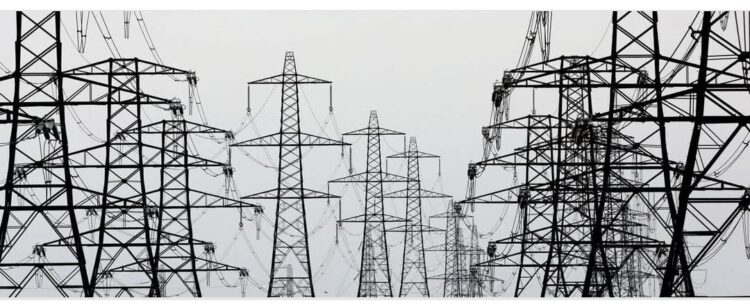The commission’s Director-General outlined efforts to boost renewables and addressed concerns over electricity exports.
Nigeria grapples with persistent energy challenges despite its vast renewable potential, the Energy Commission of Nigeria (ECN) says it is stepping up efforts to drive a sustainable energy transition to renewable options. In an interview with Channels Television, the commission’s Director-General Mustafa Abdullahi outlined efforts to boost renewables and addressed concerns over electricity exports.
Enjoy the excerpts:
Nigeria has abundant natural resources, but why do we still have millions of people without energy?
Though we are not where we ought to be, we are somewhere very strategic. Presently, out of 230 to 240 million Nigerians, only about 85 million Nigerians do not have access to electricity. That’s a lot, but 60 per cent of Nigerians have access to electricity. Our electricity generation used to be 4,000 megawatts before 2023, but right now, we are generating, transmitting and distributing 6,000 megawatts to households. That’s 2,000 more megawatts than what we used to have two years ago. Yes, we’re not there yet, but our policies and vision will get us there.
I like how you put it, 60 per cent access. But access is one part of it. There’s also the issue of uninterrupted and available power; that is, you get electricity when you need it, as you need it. How would you say we’re doing in that department?
The main issue that causes that interruption and all that is from our infrastructure. Our transmission lines are very bad because our generation itself is mainly an energy mix from two sources – gas and hydro, but we are focused on diversification of those energy sources to give Nigerians other options. In addition to gas and hydro power sources, we have solar, an abundance of it. The whole world is looking towards renewable and clean energy. That’s what we are doing right now. The recent Electricity Act has decentralised our grid. States can generate, distribute, and regulate their electricity. So that’s a big one. We believe that in five to six years, we will get it right with the policy on the ground right now.
Nigerian Senate
FILE: The Nigerian Senate
When the Electricity Act was passed, there was a lot of excitement, especially around the idea of states having their local electricity markets. But since then, progress seems slow. What’s holding the states back?
One of the functions of the energy commission is to ensure that the states get it right in terms of giving access to electricity. And we’re part of the players that pushed the Electricity Act of 2023 to ensure the decentralization of electricity from the grid, for states to generate, distribute, and also regulate their electricity.
So, it’s a very big plus for the nation. Now, the reason you’ve seen slow action is because of capacity. For the states, it’s not easy to generate and to regulate electricity, and that is where we come in to build the capacity of the states.
A file photo of a power installation
We are to ensure that they have their policies, and ensure that we bring investors, because investment matters. Even when that policy is in place in the states, we ensure that we stimulate investors’ confidence because power generation projects cost a lot of money. The average power needed in every state is about 40 to 70 megawatts. So, the states are starting with five megawatts just as the pilot, just to show goodwill, and we hope to build on that.
What does Nigeria’s overall energy mix look like?
Presently, in Nigeria, our energy mix has about 86 per cent of gas. Our energy generation comes from the majority of gas plants. We have about 12 per cent from hydro, that’s the dams. And we have just a few renewables. And those are just from the audits that we did to get the data.
On renewables, the sun is our strategy. It is very clear. We have a very good ray system. We have chosen to solarise almost the entire country.
Interestingly, it is a strategic one. It will interest us to know that it’s only about 6% of what we generate that we give the Benin Republic. That is because it is coming from the dam, hydro production. The reason we have to do that is that the border system is strategic.
If you look at our waterways, we have border countries like the Benin Republic. Most of the hydro systems we have are within the southwest and the riverine south-south zone. Also, most of our energy generation is from gas production in the Niger Delta. So, because our plants are mainly situated in these water areas, we need to share whatever we’re producing from any stream.
There was a time when the Benin Republic threatened to situate a dam close to the Nigerian dam. So, we had to negotiate with them because if you put two dams at the same location, it will cause a big disturbance, and we will not be able to get anything from there. So, this is the reason we give some countries our electricity. We’re not doing it to sell, but it is strategic and it’s also economically driven. We’re a giant of Africa. We cannot share rivers and waterways with a country and not give them electricity out of goodwill.
Electric vehicles
What is your position on electric vehicles (EVs), and why does it appear we’re not pushing EVs strongly?
For the first time in history, every state has a free trade zone. What we are doing is to utilise those zones for factories, for EVs and also for the production of components in energy. Recently, my commission procured EV cars. We don’t do petrol cars anymore because we must show Nigerians it’s possible. Now, what we tell Nigerians is: ‘If you have an EV, you don’t need to worry about electricity. Just walk to our office, charge your car, and go.’



